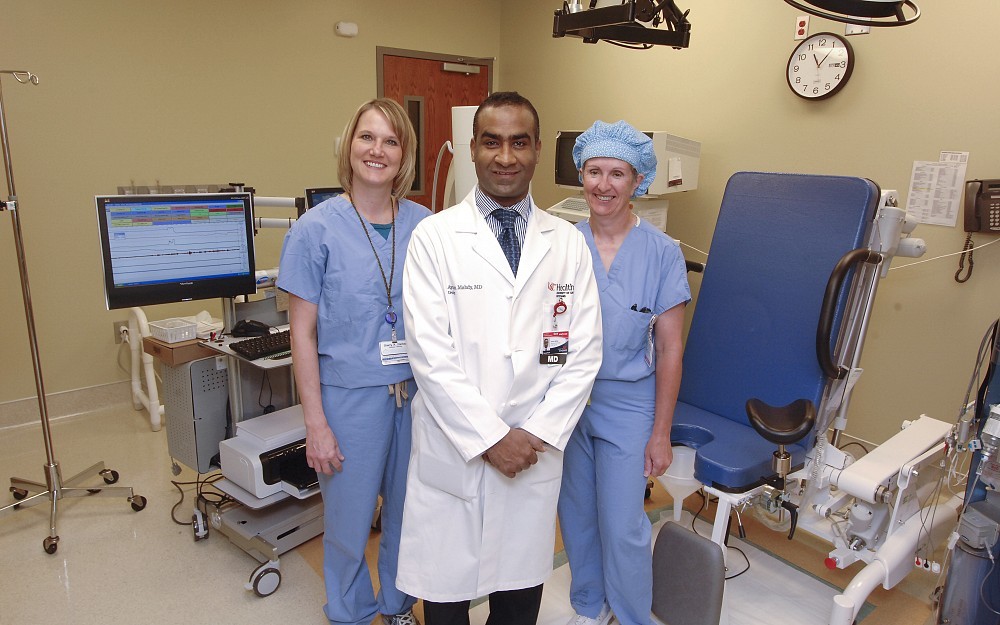
Video Urodynamics Lab Now Open in West Chester

Video urodynamics lab in West Chester

Video urodynamics lab in West Chester

Video urodynamics lab in West Chester

Example video urodynamic image of a valsalva leak

Example video urodynamic image of valsalva leak in voiding phase

Example video urodynamic image of valsalva leak after voiding

Example urodynamic pressure flow study related to valsalva leak

Ayman Mahdy, MD, PhD, is director of female urology and voiding disorders for UC's urology division.
Related Stories
Machine learning brings new insights to cell’s role in...
April 30, 2025
Researchers led by the University of Cincinnati’s Anna Kruyer and the University of Houston’s Demetrio Labate have published research in the journal Science Advances applying object recognition technology to track changes in brain cell structure and provide new insights into how the brain responds to heroin use, withdrawal and relapse.
Most teens prescribed SSRIs did not have recommended follow-up...
April 30, 2025
The University of Cincinnati and Cincinnati Children's Hospital Medical Center's Martine Lamy commented to Medscape on new research that found fewer than half of the adolescents prescribed a selective serotonin reuptake inhibitor (SSRI) at two large Chicago pediatric primary care clinics had a follow-up visit within the recommended 6 weeks.
UC recognizes students for innovation achievement and leadership
April 30, 2025
Read about the University of Cincinnati’s undergraduate innovation awards for 2025.
